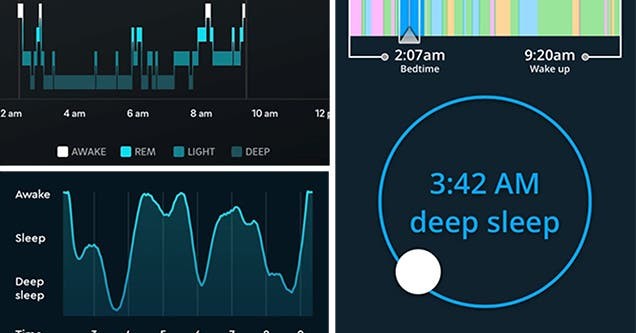In today’s fast-paced world, getting a good night’s sleep can often feel like an elusive goal. Yet, sleep is a cornerstone of overall health, influencing everything from cognitive function to emotional well-being. As a result, many people are turning to technology to better understand and improve their sleep patterns. Among the most promising advancements in this area is the use of artificial intelligence (AI) to analyze sleep data. This technology not only provides detailed insights but also personalizes recommendations, helping individuals optimize their rest in ways previously unavailable.
AI’s ability to analyze sleep patterns hinges on its capacity to process vast amounts of data and identify subtle trends that human observers might miss. Devices like smartwatches, fitness trackers, and specialized sleep monitors collect continuous data points—heart rate, movement, breathing patterns, and even environmental factors like room temperature or noise levels. These raw data sets, while rich, can be overwhelming and difficult to interpret without sophisticated tools. This is where AI steps in, using machine learning algorithms to sift through the information, categorize different stages of sleep, and detect irregularities such as insomnia or sleep apnea.
One of the most remarkable features of AI-driven sleep analysis is its personalization. Unlike traditional sleep studies conducted in clinical settings, which offer snapshots of sleep over one or two nights, AI technology provides ongoing monitoring in the comfort of your own home. This continuous tracking captures the nuances of your unique sleep cycle, adapting its insights as your habits and health evolve. For instance, if the AI detects that your deep sleep duration has been decreasing over several weeks, it might flag this trend and suggest lifestyle adjustments or medical consultation, tailored to your specific situation.
The practical benefits of this technology extend beyond mere data collection. AI can translate complex sleep metrics into actionable advice. Suppose you’re frequently waking up during the night due to environmental noise or an inconsistent bedtime routine. An AI-powered app might recommend setting a white noise machine or establishing a wind-down ritual to promote better sleep hygiene. Some platforms even integrate with smart home devices, automatically adjusting room temperature or lighting to create an ideal sleeping environment based on your preferences and past sleep quality.
The use of AI in sleep analysis also opens doors for healthcare providers. Clinicians can receive detailed, longitudinal reports on a patient’s sleep habits without requiring multiple clinic visits or overnight stays in a sleep lab. This continuous data can enhance diagnosis and treatment of sleep disorders, making care more efficient and accessible. For example, an AI system might identify patterns indicating obstructive sleep apnea and alert a doctor to recommend further testing or intervention. In this way, AI acts as an early warning system, potentially preventing more serious health issues linked to poor sleep, such as cardiovascular disease or mental health disorders.
Moreover, AI’s role in sleep analysis dovetails with broader trends in personalized medicine. By integrating sleep data with other health information—like diet, exercise, and stress levels—AI can help paint a comprehensive picture of one’s overall well-being. This holistic approach allows for more nuanced health recommendations, acknowledging how interconnected lifestyle factors influence sleep quality. It’s not just about how long you sleep, but how various elements of your daily life affect that sleep.
Despite these advantages, it’s important to recognize that AI-based sleep analysis isn’t a magic bullet. While the technology can identify patterns and offer suggestions, it cannot replace the nuanced understanding and care provided by medical professionals. Sleep is influenced by complex physiological and psychological factors, and persistent problems should always be evaluated by a healthcare provider. Additionally, privacy concerns arise as sensitive health data is collected and analyzed, emphasizing the need for robust security measures and transparent data policies.
Real-world examples highlight the growing impact of AI in sleep health. Companies like Fitbit and Oura have integrated AI into their devices, providing users with detailed sleep scores and personalized tips. More specialized platforms like SleepScore and Eight Sleep utilize AI to analyze sleep stages with clinical-level accuracy, helping users track improvements over time. These innovations illustrate how AI is making sophisticated sleep analysis accessible to a broad audience, empowering individuals to take charge of their health with data-driven insights.
In summary, AI’s role in analyzing sleep patterns represents a significant leap forward in how we understand and manage one of the most vital aspects of health. By leveraging continuous data collection and intelligent algorithms, AI provides personalized, actionable insights that can improve sleep quality and, by extension, overall well-being. While it complements rather than replaces professional medical care, this technology offers a powerful tool for anyone looking to unlock the secrets of better rest. As AI continues to evolve, its integration into sleep health promises to become even more sophisticated, paving the way for healthier, more rested lives.




